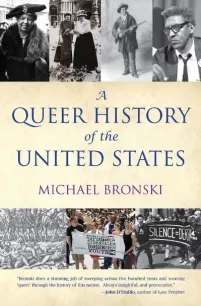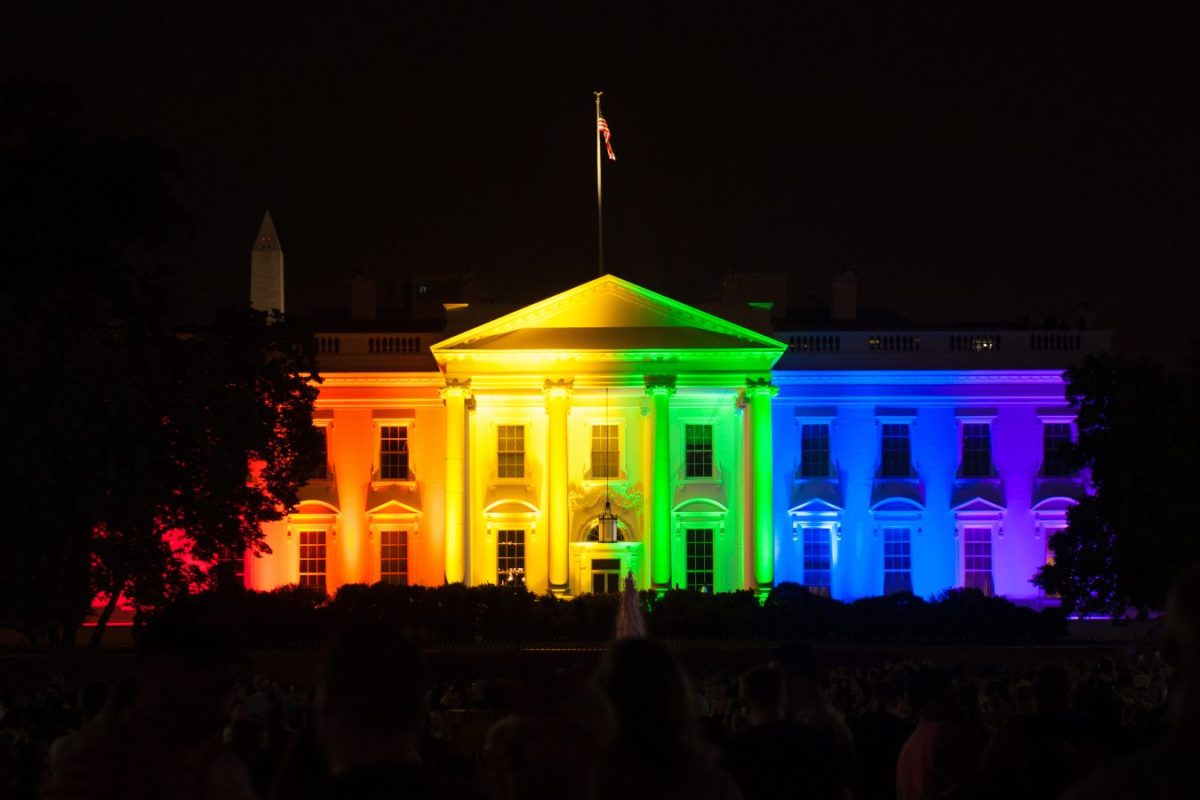On December 13, 2022, President Biden officially signed The Respect for Marriage Act. While this is ultimately a positive outcome that will provide a safety net if (or when) Obergefell v. Hodges falls—which would make same-sex and/or interracial marriage illegal in most of the U.S.—it has some massive holes. This was by design and indicative of a larger issue when civil rights hinged on things like marriage.
In A Queer History of the United States, Michael Bronski concludes his excellent book (which, up until this point, is primarily a straightforward history text) by arguing that LGBTQ+ rights, like many other civil rights, have oftentimes been won by appealing to the most conservative values—”conservative,” in this context, refers to what people see as “traditional” and aspirational. (See also: trans exclusion during Gay Liberation to now.) Essentially, rights (even those beyond marriage) have been won by appealing to commonality (“We’re just like you, but ____”), instead of giving people full rights because they deserve respect and dignity (“We’re different but also deserve to be treated the same”). This is to maintain the status quo with minimum caveats, and fails to investigate (or reflect on) why we are where we are, beyond just saying we hold less bigotry.

This is why the conversation has been around marriage, and not a wholesale acceptance and inclusion of queerness. Even in the latest bill (The Respect for Marriage Act), there are a lot of elements that seek to maintain the status quo, with an asterisk. The bill requires all states to recognize same-sex unions even if the Supreme Court strikes down the previous 2015 decision that legalized same-sex marriage across the U.S., but it fails to allow these couples to get married in any state. 35 states have same-sex marriage bans that have been dormant since 2015. If Obergefell is overturned, it would automatically trigger those bans to take effect, similar to the activation of abortion bans in numerous states following the fall of Roe v. Wade. There were also heavy stipulations to ensure The Respect for Marriage Act would re-enforce monogamy and that it wouldn’t affect religious institutions’ tax status. In addition, the bill explicitly mentions sex instead of including sex and gender. This will probably be used as a loophole to discriminate against trans people.
Who gets left behind
The current concept of marriage equality often pushed does little to nothing with regard to other LGBTQ+ couples and many who have been left behind since, like those who are economically disadvantaged. Even platonic unions (which may include asexuals and mixed living situations) are challenged unless you’re very young or very old. As cities move to allow for mixed use zoning for affordable housing (the opposite of a suburb in many respects), some are banning cohabitation of people who are not related—so roommates, basically. Three’s Company plus one is not allowed, even as people are desperately finding creative ways to avoid becoming unhoused. Factoring in elements like race and disability makes the need for reform more essential.
Right before the pandemic began, a person with a disability was twice as likely to live in poverty—and the current marriage laws contribute to this. Even in 2015, when same-sex marriage was legalized, a queer person with a disability could only cheer so much. If you are married, or—in many cases—caught living with a partner, you can lose your benefits, such as Medicaid and Social Security. You can see discussions of this online via the #VowsYetPromised hashtag created by Imani Barbarin (a.k.a. Crutches and Spice.) These restrictions are in place to prevent people from “cheating the system,” however they are just an extension of means testing, an outdated and arbitrary process used to determine benefits eligibility.
Disability advocate Bethany Lilly told NPR earlier this year, “I don’t think, you know, 50 years ago, people would be thinking about people with disabilities getting married, whereas now that’s just a perfectly normal expected part of life for a lot of people.” Part of the reason people don’t think about this is that in the U.S., Canada, and many other countries, disability laws are tied up in eugenics history. It used to be far more common (than it already is) to sterilize people with disabilities and prevent them from getting married.
In addition to marriage equality, legislators at every level of the government should be advocating for justice for everyone, whether they are part of a couple or they’re an individual who wants to live alone or with a collective with others. These various ways of living are all lifestyles (i.e. living situation, not gender or sexuality) that should be respected, with laws to fall back on when needed. At the bare minimum, legislation (like the Supplemental Security Income Restoration Act of 2021) must ensure equality—if not equity—and prevent systemic punishment for all, regardless of their living situation.
What the government can (and should) do about it
Instead of legislators putting all their eggs in one (conservative) basket, the government should be providing justice and equality for everyone, at every level. It shouldn’t matter if you’re living alone, with a large group, or trying to recreate the nuclear family. Laws like the Supplemental Security Income Restoration Act of 2021 are great because they focus on practicality and don’t punish people who need multiple sources of support. Updates are also needed to the Americans With Disabilities Act and the Civil Rights Act of 1964 at the federal level so that the number and type of rights someone has aren’t dependent on ability, race, gender, or zip code—rather than tackling this one facet of life at a time, like marriage, employment, healthcare, and housing.
(featured image: renaschild)
—The Mary Sue has a strict comment policy that forbids, but is not limited to, personal insults toward anyone, hate speech, and trolling.—










Published: Dec 14, 2022 05:06 pm